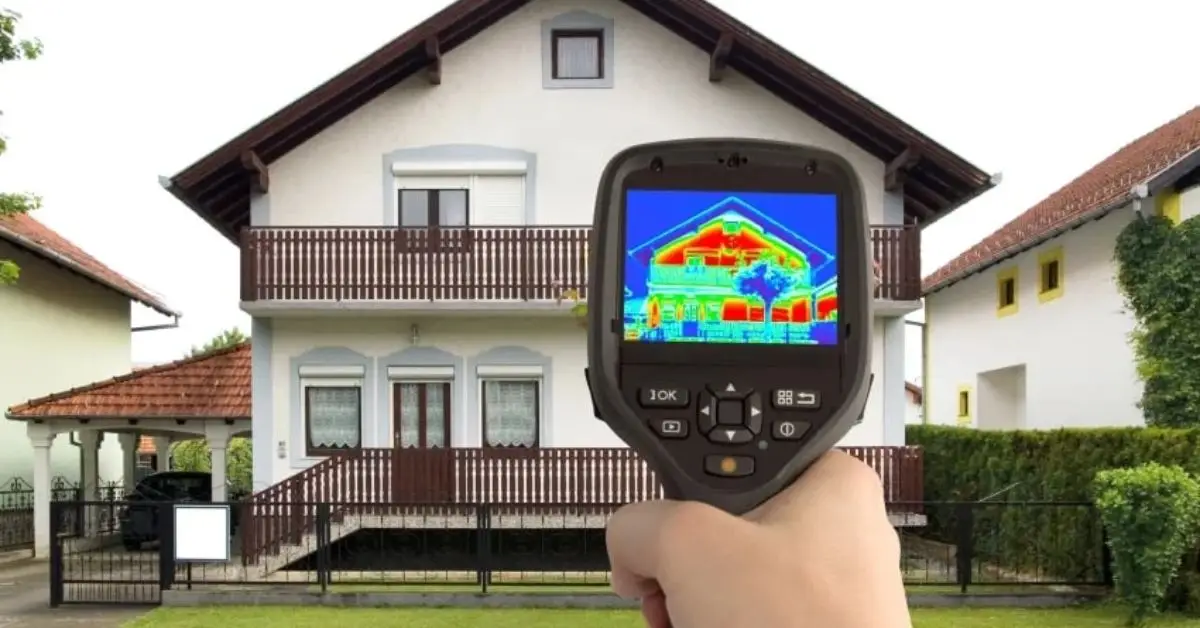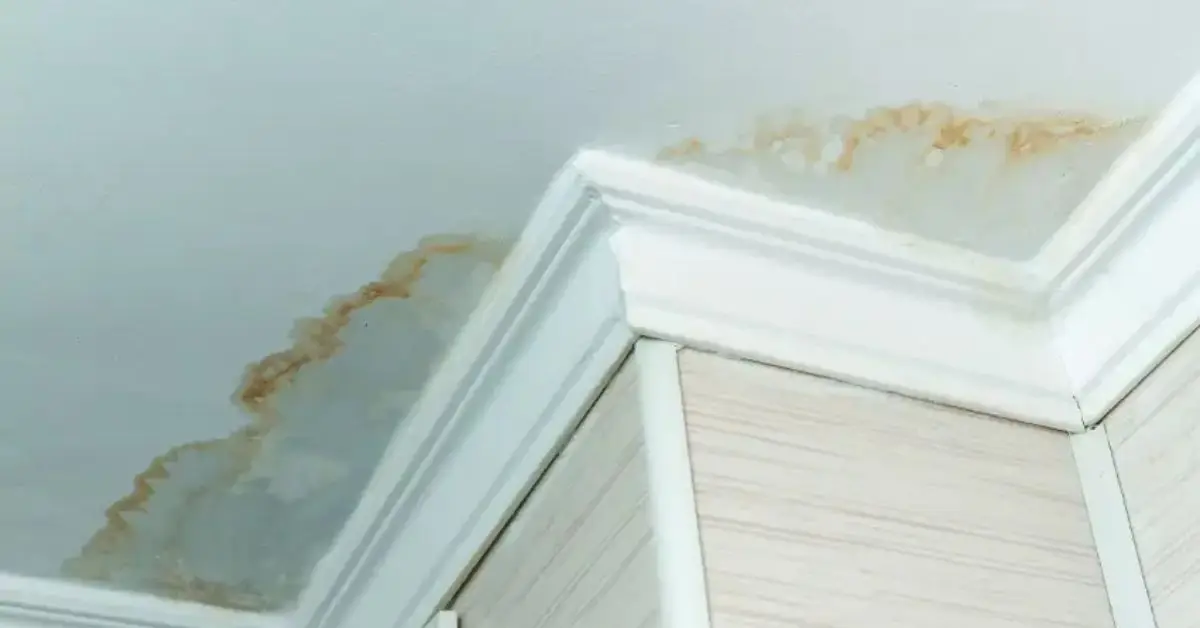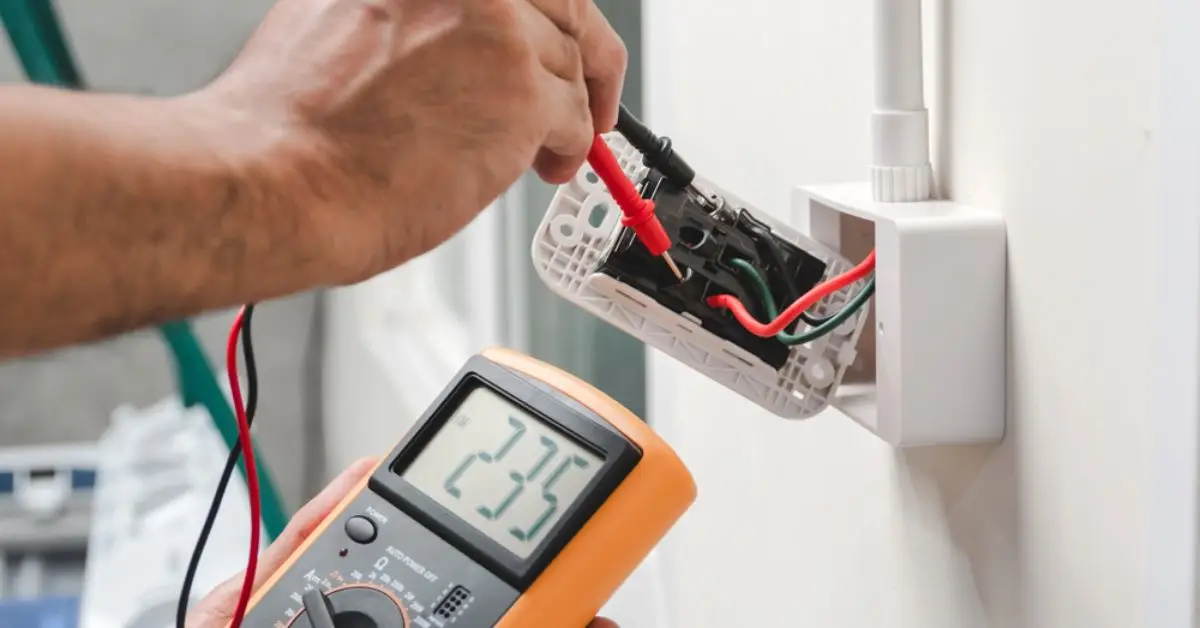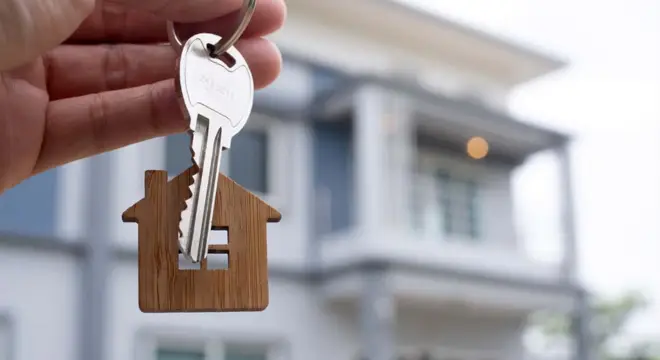12 Crucial Questions to Ask a Home Inspector Before You Buy
Buying a home isn’t just about falling in love with the kitchen island or the backyard. It’s about knowing exactly what you’re getting into—before you sign anything. And that starts with the home inspection.
I’ve seen too many buyers treat inspections like a formality. They show up, listen quietly, take a few notes, and walk away still unsure about what they’re buying. That’s not how this should go.
If you’re investing hundreds of thousands into a home, you need more than a checklist. You need clarity. And that only comes when you ask sharp, specific questions—questions that uncover risks, save you money, and give you leverage.
Let’s begin with the one most people skip over entirely.
1. What are your credentials, certifications, and how long have you been doing this?
This isn’t small talk—it’s the foundation of everything that follows.
Not every home inspector is qualified to give you real answers. Some are licensed, insured, and professionally trained. Others just “look around” and write vague reports. You deserve better than that.
Ask them clearly: Are you licensed in this state? Are you certified by a professional body like ASHI or InterNACHI? How many inspections have you done on homes like this—same age, same style, same problems?
Also ask if they carry Errors and Omissions insurance. That one detail can make a huge difference if they miss something important.
This question isn’t just about their resume—it tells you whether or not to trust what they say next.
The wrong inspector might overlook costly issues. The right one spots subtle warning signs and explains what they mean in plain language. This sets the tone for the entire inspection.
What’s one thing you wish you had asked during your home inspection? Let’s talk about it below.
2. What exactly does your inspection cover—and what’s not included?
This is the question that can save you from false confidence.
Too many buyers walk away from an inspection thinking “everything looks fine,” only to find out later that mold, radon, or a cracked sewer line were never even checked. Why? Because those things are often not included in a standard home inspection.
You need to ask your inspector to be specific. What systems and areas do you evaluate? Roof, foundation, plumbing, electrical—fine. But what about behind walls? Crawl spaces? Chimneys? Attics? Do you walk the roof or just observe from the ground?
More importantly—what isn’t included?
Most inspectors won’t automatically test for radon, mold, lead paint, asbestos, or sewer line issues. These require separate services. If you assume they’re covered, you’re taking a risk you didn’t sign up for.
Ask for a sample report. That’ll show you how detailed their findings usually are—and whether they flag things clearly or bury them in vague language.
Knowing the scope upfront keeps you from assuming the house is “cleared” when it actually hasn’t been fully assessed. If something major is excluded, now’s your chance to schedule a specialist before the closing window closes.
Ever been caught off guard by something your inspection didn’t catch? Drop your story below—I’ve seen some wild ones too.
3. Do you offer any additional services like thermal imaging, sewer scope, or radon testing?
Not all problems show up in plain sight.

Some of the most expensive issues—like hidden water damage, foundation shifts, or dangerous gases—need special tools and tests to detect. Your standard inspection might skip these entirely unless you ask.
Thermal imaging, for example, can spot moisture leaks behind walls, electrical hot spots, or poor insulation. A sewer scope checks for tree root intrusion or collapsed pipes underground—issues that can cost thousands to fix but won’t show up unless scoped. Radon? It’s a colorless, odorless gas that causes lung cancer. And yet, many inspectors don’t even mention it.
Ask directly: Do you provide these services? Are they included or extra? If not, can you refer someone trustworthy who does?
And don’t skip these because they “seem optional.” If you’re buying an older home, a house with a finished basement, or anything with suspicious smells, stains, or water history—these tests are often the only way to uncover the truth.
These aren’t “bonus” checks. They’re risk filters. The kind of things that can turn a dream house into a financial drain if you don’t catch them early.
Have you seen a home inspection miss something major that could’ve been caught with better tools? Share below—I want to hear your experience.
4. What’s the age and remaining life of the roof, HVAC, water heater, and other major systems?
This is where real cost planning begins.
Forget the fresh paint and fancy staging—what you need to know is how soon you’ll be replacing the expensive stuff. Roofs, HVAC systems, water heaters, electrical panels… they all have a shelf life. And when they go, they go big.
Ask your inspector to estimate the age and current condition of each major system. Not just “it’s working”—but how well it’s working, and how long it’s likely to keep doing so.
How old is the furnace? When was the roof last replaced? Any signs of patching or poor installation? Is the water heater near the end of its 10–12 year range?
Also ask if any systems look mismatched—for example, a brand-new HVAC hooked up to 40-year-old ductwork. That kind of setup can quietly drain energy and money over time.
You’re not just buying a home—you’re buying a set of financial time bombs with varying timers. Knowing what’s due soon lets you plan ahead, budget wisely, or even renegotiate your offer.
What’s the biggest repair surprise you—or someone you know—got after moving in? Let’s talk about it below.
5. Are there any signs of structural movement, foundation cracks, or sagging floors?
This is the one that makes or breaks a deal.
Ask your inspector, plainly: Do you see anything that suggests the house is shifting, settling, or structurally compromised?
You’re looking for signs like horizontal or stair-step cracks in foundation walls, doors that don’t close right, sloped floors, or gaps between walls and ceilings. Even hairline cracks can matter—depending on where they are and how they’re forming.
Not all foundation cracks are serious. Some are just cosmetic from age. But others signal real movement—caused by soil expansion, water pressure, or poor construction. And those problems don’t stay small for long.
If your inspector spots anything questionable, push for details: Is this a structural concern or just cosmetic? Should I bring in a structural engineer? What kind of repairs might this require?
Foundation issues can be deal-breakers. They’re expensive to repair, hard to insure, and tough to resell. Catching signs early gives you options—walk away, renegotiate, or bring in a specialist before it’s too late.
Ever walked into a house and felt the floor dip under your feet? It’s more common than you think—drop your story below.
6. Any signs of water intrusion, mold, rot, or pest damage?
This question might sound obvious—but most buyers don’t ask it clearly or early enough.

Water is the quiet destroyer of homes. It doesn’t need to pour in from the ceiling to do damage. A small leak behind a wall, slow drip near a foundation, or hidden condensation in an attic can lead to rot, mold, and thousands in repairs—before you even realize there’s a problem.
Ask your inspector to show you any signs of water intrusion. That includes water stains, soft wood, musty smells, bubbling paint, or rusted metal fixtures near plumbing. Then go further—ask where they’ve seen these issues start before. A good inspector has patterns memorized: under windows, behind toilets, around chimneys.
And don’t forget about pests—especially termites, carpenter ants, or rodents. These are location-dependent, but if you’re in a high-risk area, your inspector should know what signs to look for and whether you need a pest-specific inspection.
Also ask: Has any damage been covered up? That weird fresh drywall patch in the corner of a basement? It might not be cosmetic.
Cosmetic fixes can hide dangerous problems. Water and pests don’t just cost money—they affect health and long-term safety. Catching the first signs now gives you time to act, instead of regret.
Ever found mold or rot after you moved in? That stuff never stays small. Share your lesson learned—others need to hear it.
7. Where are the main water shut-off valve, gas meter shut-off, electrical panel, and GFCI outlets?
This is about control—knowing how to shut things down when it counts.
Ask your inspector to physically show you where the main shut-off points are. Water, gas, electric—every second matters in an emergency, and you don’t want to be Googling “how to shut off gas” with a wrench in your hand.
Where exactly is the main water shut-off? Is it inside the home or out near the street? What kind of valve is it—old-school or newer ball valve? Is it stiff, rusted, or leaking?
What about the gas meter shut-off? If your house uses gas, you should know how to cut the supply if you smell anything suspicious.
Then there’s the breaker panel. Is it labeled clearly? Are there any double-tapped breakers or old wiring types like knob-and-tube or aluminum? Also check the GFCI outlets—the ones near kitchens, bathrooms, and outside. Are they working, properly grounded, and resetting as they should?
Most inspectors will note basic function. But your job is to ask deeper: Is this setup safe, up to code, and future-proof?
These are the systems that keep your home running—and keep your family safe. You don’t want to learn about them for the first time in the middle of a flood or power trip.
Ever had to shut off your water or power in a panic? What did you wish you knew sooner? Let’s talk.
8. Is the electrical system up to code—and what type of wiring does the house use?
This isn’t just about whether the lights turn on.

Rainbow Restoration
Electrical systems age, get modified, and sometimes turn dangerous—especially in older homes. You need to know not just if the system works today, but if it’s safe, legal, and built to last.
Ask your inspector: What type of wiring is in this house? If they mention aluminum wiring, knob-and-tube, or anything you don’t recognize—stop and dig deeper. Aluminum wiring, for example, was used in the 60s and 70s but is now considered a fire risk in many situations. Knob-and-tube wiring? That’s even older and often ungrounded.
You also want to ask: Is the panel properly sized and up to current code? A 100-amp panel might’ve worked in 1985, but if you’re planning to install central AC, an EV charger, or a new kitchen—it might not cut it. Look for signs of DIY work, overcrowded panels, or double-tapped breakers.
And make sure your inspector tests GFCI and AFCI protection—these are required in newer homes but often missing in older ones.
Electrical issues are one of the leading causes of house fires. And outdated systems can delay your closing, kill your homeowner’s insurance, or add thousands to your move-in budget. Don’t wait for a spark to realize something’s wrong.
Have you ever upgraded an old electrical system? How much did it really cost—and was it worth it? Share below.
9. What type of plumbing does the house have—and are there any signs of leaks or corrosion?
Not all pipes are created equal. Some quietly fail without warning. Others are already banned or recalled in certain states. You need to ask what’s running behind the walls—because chances are, you won’t see it yourself.
Start with: What type of plumbing is in place? Copper, PEX, galvanized steel, PVC, polybutylene—each has pros and cons. Polybutylene, for instance, was commonly used in the 80s and 90s but has a history of sudden failure and class-action lawsuits. Galvanized steel corrodes from the inside and can reduce water pressure or even cause leaks inside walls.
Then ask: Do you see any signs of active or past leaks? Look under sinks, around water heaters, behind toilets. Check for discoloration, corrosion at fittings, warped floors, or that “old wet wood” smell in basements and crawl spaces.
Also check the water heater closely. Ask: How old is it? Is it installed to code? Any signs of rust or sediment at the bottom? It might be working fine today but ready to fail next winter.
Plumbing issues can be slow, sneaky, and massively expensive. Hidden pipe problems can cause mold, structural damage, and months of disruption if they fail after you move in. You don’t want to budget for a couch and end up paying for repiping.
Seen sketchy plumbing in a house tour or after buying? Tell us what you found—it helps others spot the signs too.
10. If you find a problem, is it major or minor—and what would a typical fix cost?
This is the question that separates information from insight.
A good inspector will point out everything they see—but not everything carries the same weight. A small roof stain? Might be nothing. A foundation crack? Might be everything. Your job is to sort critical from cosmetic, and that’s where most buyers get overwhelmed.
So ask: Is this a red flag, or something I can live with for now?
Then go one step further: Roughly what does it cost to fix? Most inspectors won’t give formal estimates, but experienced ones can at least say, “That’s a $300 repair,” or “You’re probably looking at a few thousand here.”
Also ask: Would this be considered normal wear and tear for a house this age? A 20-year-old home will show signs of use. That doesn’t mean it’s falling apart. The key is knowing what’s expected—and what’s a warning sign.
You want to leave your inspection with more than a list. You want a strategy: What needs to be addressed now, what can wait, and what should be negotiated with the seller. It’s easy to misjudge what’s minor vs. what could sink a deal—this guide on 8 costly home buying and selling mistakes will show you how to spot them before it’s too late.
Without context, inspection reports can feel like red-alert documents. This question brings clarity, helps you prioritize, and gives you talking points if you’re renegotiating based on the report.
Ever had a deal fall through—or almost fall through—because of an inspection report? What helped you make the final call? Let’s talk.
11. Based on everything you’ve seen, would you personally buy this house?
It sounds blunt—but it cuts through the noise.
After an hour of walking through the house, poking around the attic, crawling under the deck, and noting every crack, leak, and concern, your inspector has a full picture. Asking them if they’d buy the house puts all that knowledge into perspective.
Now, they might hedge their answer—and that’s fine. They’re not here to give you financial advice. But a seasoned inspector can usually give you a gut check: “I’ve seen worse,” or “Honestly, I’d be nervous about the foundation,” or “If the seller fixes X and Y, I’d go for it.”
You’re not looking for a yes/no. You’re listening for tone, hesitation, confidence. How they answer tells you just as much as what they say.
This question also builds trust. It shows you’re not just passively collecting information—you’re making decisions based on real experience, not just paperwork.
You might have blind spots. You’re emotionally attached, or just tired of house hunting. A straight-shooting answer from someone who sees homes all day, every day? That can bring you back to reality—or help you move forward with confidence.
Have you ever ignored a gut feeling—and regretted it later? Or trusted it and avoided a money pit? Share your story below.
12. Can you recommend licensed contractors or specialists if further evaluation is needed?
Not every issue ends at the inspection report.
Sometimes your inspector will flag something and say, “You’ll need a structural engineer to look at this,” or “You should get a licensed electrician to confirm.” That’s when most buyers freeze. Who do you call? Who can you trust? How fast can you get someone in before your contingency window closes?
This is where a good inspector can help you go further. Ask them: Do you have trusted referrals? Someone they’ve worked with before who won’t upsell or ghost you? Many experienced inspectors know which local pros are solid—and which ones cut corners.
You should also ask: What kind of specialist should I call for this specific issue? For example, not all “contractors” handle foundation work. Some only do general renovations. You want the right person the first time.
You don’t want to be scrambling to find help after the inspection clock is ticking. Having names ready—reputable, local, and experienced—can save you stress, time, and thousands in misdiagnosed repairs.
Ever been overwhelmed by contractor choices after a bad inspection? What did you learn the hard way? Let’s trade notes.
Being Present During the Inspection: What to Watch, Ask, and Document
Never just “wait for the report.”
If you’re serious about the home, you need to be at the inspection. Not standing off in the corner—actively involved. This isn’t just about watching the inspector work; it’s your one chance to ask questions in real time, see problems firsthand, and understand how the house actually lives.
Ask: Can I walk through with you as you inspect? Most good inspectors will say yes. They’ll point things out as they go, which is way more useful than reading it later in a PDF.
Here’s what you should be doing during the walk-through:
- Watch their body language. Do they pause at something? Take longer in certain rooms? That often says more than what they write.
- Ask context-based questions: “Why is that discolored?” “Is that normal for this kind of roof?” “What happens if we ignore this?”
- Take photos and videos of anything they flag. Don’t rely only on their report. You might need those visuals when talking to contractors or renegotiating with the seller.
- Listen for tone. If they say “you might want to keep an eye on this” vs. “this really concerns me”—pay attention. That’s experience speaking.
Why this matters: Being physically present—and mentally engaged—can uncover subtle risks and give you a better sense of the home’s overall condition. You can’t do that by reading a summary three days later.
Have you ever attended an inspection and spotted something the inspector didn’t even notice? Or had a “gut moment” just by being there? Let’s hear it.
After the Inspection: How to Read the Report and Use It to Your Advantage
Once the inspection is over, you’ll get a report. Most people skim it, panic over a few red highlights, and move on. Don’t do that. If you’re feeling overwhelmed by paperwork after your inspection, this breakdown of essential home buying documents explains what’s critical—and what to avoid signing blindly.
The report isn’t just a list of flaws—it’s a tool. If you read it with the right mindset, it can help you make smarter decisions, renegotiate with the seller, or prepare for future maintenance like a pro.
Start by asking yourself:
- Which issues are safety-related, urgent, or expensive?
- Which ones are cosmetic or minor wear-and-tear?
If the inspector hasn’t already, call and ask them to walk you through the top 3–5 concerns. What would they prioritize if they were buying this house?
Next, talk to your agent. Show them the report and ask:
Which of these issues can we use to renegotiate?
Sometimes the seller will lower the price, offer a credit, or agree to fix key things before closing. If you don’t ask, you don’t get.
You should also get repair estimates quickly. Don’t wait until after your inspection window closes. Reach out to contractors for anything serious—foundation cracks, electrical panel replacements, sewer line issues, etc.
Finally, keep the report. Even if you move forward, it’s your maintenance blueprint for the first few years in the home.
A good report gives you knowledge. A smart buyer turns that knowledge into money saved, stress avoided, and smarter planning ahead.
Ever renegotiated a deal after an inspection—or wished you had? What worked (or didn’t)? Let’s talk lessons learned.
Inspector Red Flags: What Should Worry You Before the Report Even Comes In
Not every inspector is working for you. Some just want to move the deal along. Others might be recommended by the seller or agent and could go easy on the house to “keep things smooth.”
You need to stay sharp—not just about the house, but about who’s inspecting it.
Here are a few warning signs to watch for:
1. The inspection feels rushed.
If the inspector spends only 45 minutes in a 2,000 sq. ft. home, that’s a red flag. Good inspections take time—usually 2–3 hours depending on size and complexity.
2. They downplay everything.
Phrases like “that’s nothing” or “pretty normal for the age” can sometimes be true—but if that’s their answer to everything, push back. Ask follow-up questions until you’re confident.
3. You’re discouraged from attending.
If your inspector or agent says “no need for you to be there” or tells you to wait for the report—ask why. You have every right to be present.
4. The report is vague or overly short.
Watch for missing photos, recycled templates, or generic phrases like “appears functional.” A good report should explain what, why, and what to do about it.
5. No license or insurance.
Always verify their credentials. If they won’t share their license number or proof of insurance, walk away. You need someone accountable if they miss something major.
A home inspection is only as good as the person doing it. The wrong inspector can cost you thousands—or worse, leave you thinking the house is fine when it’s not.
Ever had a bad feeling about an inspector—or learned the hard way they missed something big? Your story could save someone else from the same mistake.
Final Thought: The Right Questions Protect More Than Your Wallet
Buying a home isn’t just a financial move—it’s personal. It’s where you’ll build routines, memories, maybe even a family. So when you walk into that inspection, you’re not just checking boxes. You’re making sure your future home is safe, solid, and something you can trust. And if you’re a student or first-time buyer trying to navigate this complex process, this no-nonsense guide for student homebuyers is packed with insights no one talks about.
These 12 questions aren’t just about getting answers—they’re about understanding what those answers mean, and whether you’re truly ready to move forward.
If something feels off, pause. If something feels right but you want confirmation, ask. The best homebuyers aren’t the ones who know everything—they’re the ones who ask smart questions, stay engaged, and listen closely when the answers aren’t simple.
Because the cost of asking nothing? Is almost always higher than the cost of asking too much.
Which question surprised you the most—or felt like something you wouldn’t have thought to ask? Let’s talk below. Your question might be the one that helps another buyer avoid a major mistake.
Want more expert tips to protect your biggest investment?
Visit Build Like New for smart, no-fluff advice on inspections, renovations, and buying with confidence.
We help you spot what others miss—before it costs you.
Disclaimer: This article is for informational purposes only and does not constitute professional, legal, or financial advice. Always consult a licensed home inspector or qualified expert for guidance specific to your property.


